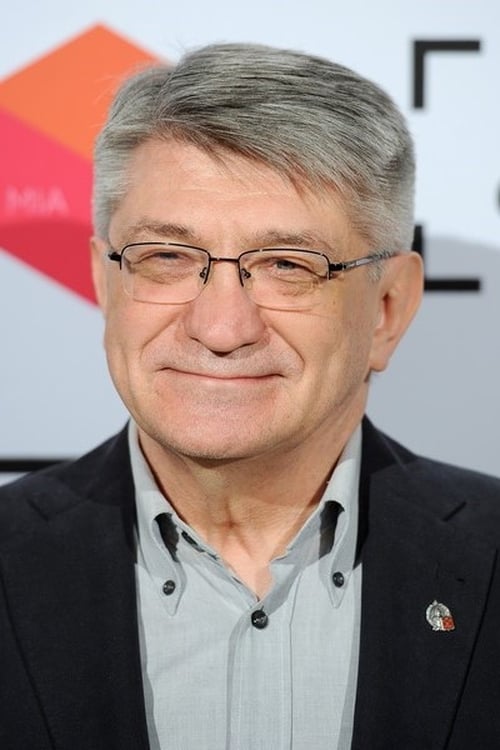
Self (archive footage)
The panorama of human affairs encounters the “man with a movie camera”. His playground has no boundaries, his curiosity no limits. Characters, situations and places pitch camp in the life of a humanity that is at once the viewer and the thing viewed. But what are the last days of this humanity? Have they already passed? Are they now or still to come?

Screenplay
A civil and artistic statement about those who determined the fate of the planet: Stalin, Churchill, Mussolini, Hitler, according to a Russian newspaper.

Director
A civil and artistic statement about those who determined the fate of the planet: Stalin, Churchill, Mussolini, Hitler, according to a Russian newspaper.
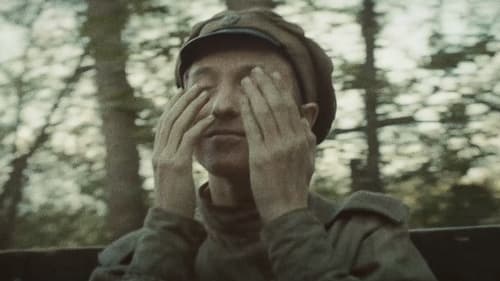
Creative Producer
A teenage soldier in World War I—a simple village boy with a naive youthful dream of fame and medals—throws himself into the unknown and goes blind in the first battle, thus taking on a new job: intercepting enemy planes by listening to the air through huge metal funnels.
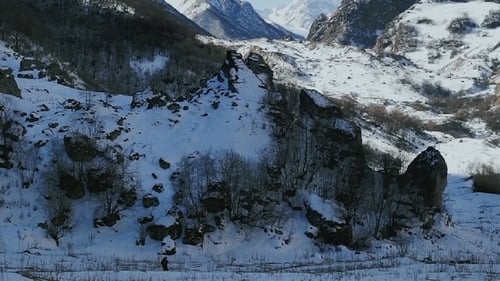
Producer
A young man was born in a small Russian city, but now lives in the Caucasus, in a foreign culture. He works as a mountain guide and enjoys life, but remains a stranger among the people he lives with. He will have to leave his carelessness behind and grow up.

Producer
1998, Nalchik. Una familia judía está en peligro: el hijo más pequeño y su esposa no vuelven a casa y a la mañana siguiente la familia recibe una nota de secuestro. El rescate que piden es tan alto que la familia se ve obligada a vender su pequeño negocio y a buscar ayuda a su alrededor.

Explores some of the most innovative attempts by contemporary artists, filmmakers, architects etc to explore multiple Temporalities and to counter the uniform sense of time promoted by our technology-driven society.

Screenplay
Video version of the dramatic dystopian performance staged by Alexander Sokurov in Vicenza, on the stage of the world's oldest theater Teatro Olimpico. The plot is based on a free interpretation of the works of I. A. Brodsky, which tells about two characters doomed to life imprisonment.

Director
Video version of the dramatic dystopian performance staged by Alexander Sokurov in Vicenza, on the stage of the world's oldest theater Teatro Olimpico. The plot is based on a free interpretation of the works of I. A. Brodsky, which tells about two characters doomed to life imprisonment.
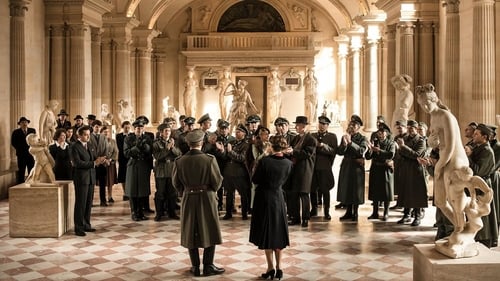
(voice)
En la Francia ocupada de la II Guerra Mundial, las autoridades nazis decidieron proteger, pese a las circunstancias, la mayor y más valiosa colección de pintura del mundo: el Museo del Louvre. A través de la historia de Jacques Jaujard y el conde Franz Wolff-Metternich, en el París de 1940, Sokurov explora la relación entre el arte y el poder, siendo el Louvre el principal lugar de la civilización viva. Ambos hombres protegieron los tesoros de dicho museo al mismo tiempo que los grandes ejércitos arrasaban el corazón de la civilización dejando muchas víctimas por delante.

Screenplay
En la Francia ocupada de la II Guerra Mundial, las autoridades nazis decidieron proteger, pese a las circunstancias, la mayor y más valiosa colección de pintura del mundo: el Museo del Louvre. A través de la historia de Jacques Jaujard y el conde Franz Wolff-Metternich, en el París de 1940, Sokurov explora la relación entre el arte y el poder, siendo el Louvre el principal lugar de la civilización viva. Ambos hombres protegieron los tesoros de dicho museo al mismo tiempo que los grandes ejércitos arrasaban el corazón de la civilización dejando muchas víctimas por delante.

Director
En la Francia ocupada de la II Guerra Mundial, las autoridades nazis decidieron proteger, pese a las circunstancias, la mayor y más valiosa colección de pintura del mundo: el Museo del Louvre. A través de la historia de Jacques Jaujard y el conde Franz Wolff-Metternich, en el París de 1940, Sokurov explora la relación entre el arte y el poder, siendo el Louvre el principal lugar de la civilización viva. Ambos hombres protegieron los tesoros de dicho museo al mismo tiempo que los grandes ejércitos arrasaban el corazón de la civilización dejando muchas víctimas por delante.

Himself
Five years in the making, based on six lengthy interviews filmed on six different locations in Saint Petersburg, we meet an outspoken artist who covers here his entire life and prolific career. The locations were Sokurov’s own favourites, where he felt at home.

Himself - Filmmaker
Ekaterimburgo, Rusia, 17 de julio de 1917. El zar Nicolás II Romanov y su familia son brutalmente asesinados por los bolcheviques. Este trágico acontecimiento pone fin a la larga dinastía que había gobernado el país con mano de hierro desde la coronación de Miguel I Romanov en 1613.

himself
Documentary film from the set of Igor Olshansky’s debut short film “Easter”. Igor Olshansky is a participant of Alexander Sokurov’s programme “Example of Intonation”, a non-commercial film support foundation.

The film is dedicated to the life and work of the Russian director, who deservedly received worldwide recognition due to his incredible talent

Self
Agnès Varda travels around the world to meet friends, artists and filmmakers for an expansive view of the global contemporary art scene.
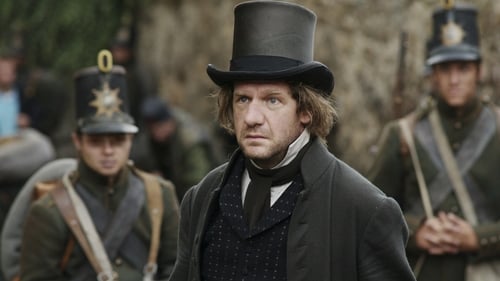
Screenplay
Ambientada en el siglo XIX. Se basa en la leyenda alemana de Fausto, un sabio que hace un pacto con el diablo, y en las adaptaciones literarias del mito por parte de Johann Wolfgang von Goethe y Thomas Mann.

Director
Ambientada en el siglo XIX. Se basa en la leyenda alemana de Fausto, un sabio que hace un pacto con el diablo, y en las adaptaciones literarias del mito por parte de Johann Wolfgang von Goethe y Thomas Mann.

Narrator (voice)

Director

Director
Amateur actors read stories from a book describing the 900-day siege of Leningrad during World War II.

Himself
The film is dedicated to the 100th anniversary of the birth of the outstanding Russian writer Alexander Solzhenitsyn.

Director

Himself
An encounter with the great Russian film director Alexander Sokurov, which gives rise to a lot of questions about his artistic stand and the problems he touches upon and resolves in his works. The film presents the director’s thoughts about the history of cinema, about the power of the sound and image, about the past and future of cinema, accompanied by fragments from his films and various archival materials.

Writer
Ambientada en Chechenia. Cuando Aleksandra Nikolaevna (Galina Vishnevskaya) va a pasar algunos días con su nieto, uno de los mejores oficiales de su regimiento. descubre un nuevo mundo, un mundo de hombres en el que no hay lugar para los sentimientos. Lo que está presente en todo momento es la lucha entre la vida y la muerte. (FILMAFFINITY)

Director
Ambientada en Chechenia. Cuando Aleksandra Nikolaevna (Galina Vishnevskaya) va a pasar algunos días con su nieto, uno de los mejores oficiales de su regimiento. descubre un nuevo mundo, un mundo de hombres en el que no hay lugar para los sentimientos. Lo que está presente en todo momento es la lucha entre la vida y la muerte. (FILMAFFINITY)

Director
TV version of the Opera "Boris Godunov" modest Mussorgsky staged by Director Alexander Sokurov at the Bolshoi Theater.

himself
Poetic portrait of a filmmaker. The famous director reflects on creativity and love. His friends and associates take part in the film: artist Vladimir Shinkarev, engineer Vladimir Nikolaev, actress Elena Kramer (Spiridonova), director, film critic Oleg Kovalov, necrorealist directors Yevgeny Yufit, Igor Bezrukov.

Writer
A documentary about the famous musician Mstislav Rostropovich and his wife, Galina Vishnevskaya.

Director
A documentary about the famous musician Mstislav Rostropovich and his wife, Galina Vishnevskaya.

Himself
A documentary about the famous musician Mstislav Rostropovich and his wife, Galina Vishnevskaya.
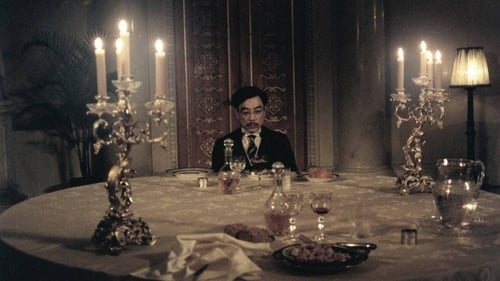
Director of Photography
Biographical film depicting Japanese Emperor Shōwa (Hirohito) during the final days of World War II. The film is the third drama in director Aleksandr Sokurov's trilogy, which included Taurus about the Soviet Union's Vladimir Lenin and Moloch about Nazi Germany's Adolf Hitler.

Director
Biographical film depicting Japanese Emperor Shōwa (Hirohito) during the final days of World War II. The film is the third drama in director Aleksandr Sokurov's trilogy, which included Taurus about the Soviet Union's Vladimir Lenin and Moloch about Nazi Germany's Adolf Hitler.

Director
Sokurov directed and filmed Mozart’s Requiem for the Rossica Choir in the wonderful hall of the St. Petersburg Philharmonic.
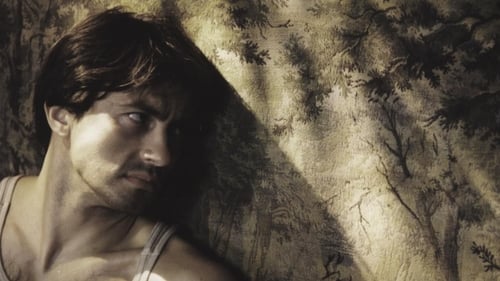
Director
Una pequeña familia "un padre y un hijo" vive en el último piso de una casa antigua. El padre se retiró del ejército, cuando era un estudiante en la escuela de vuelo experimentó el primer y el único amor de su vida. Esta chica se convirtió en su esposa y dio a luz a su hijo. Ambos tenían entonces veinte años. La esposa murió cuando era joven. Este amor siguió siendo su secreta felicidad única. El hijo creció, y probablemente será un militar como su padre. Los rasgos del hijo recuerdan constantemente al padre de su esposa. No separa a su hijo de su amor persistente: ésta es su unidad con su mujer amada. El padre no puede imaginar su vida sin su hijo. El hijo ama a su padre con devoción y profundidad, un sentimiento filial intensificado por una responsabilidad moral instintiva que está siendo probada por la vida. Su amor es casi de virtud mitológica y de escala. No puede suceder en la vida real. Esta es una colisión de cuento de hadas.

himself
Film about the work of Ukrainian film director Kira Muratova.

Himself
Making of Russian Ark, with on camera personal views by members of the cast and crew of the major film.
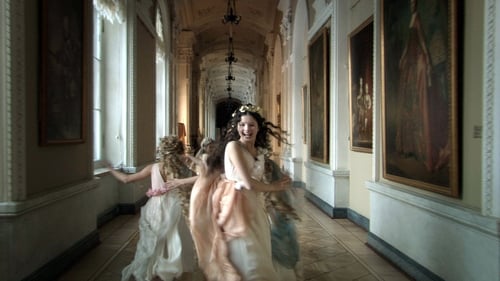
Time Traveller (voice) (uncredited)
El Marqués de Coustine, un diplomático francés del siglo XVIII con una relación de amor/odio hacia Rusia se encuentra en un viaje en el tiempo en el Palacio de Invierno de San Petersburgo -desde los tiempos de Pedro el Grande hasta nuestros días. Con él, un invisible realizador ruso (en off), que está confuso sobre la posición de Rusia en Europa.

Dialogue
El Marqués de Coustine, un diplomático francés del siglo XVIII con una relación de amor/odio hacia Rusia se encuentra en un viaje en el tiempo en el Palacio de Invierno de San Petersburgo -desde los tiempos de Pedro el Grande hasta nuestros días. Con él, un invisible realizador ruso (en off), que está confuso sobre la posición de Rusia en Europa.

Writer
El Marqués de Coustine, un diplomático francés del siglo XVIII con una relación de amor/odio hacia Rusia se encuentra en un viaje en el tiempo en el Palacio de Invierno de San Petersburgo -desde los tiempos de Pedro el Grande hasta nuestros días. Con él, un invisible realizador ruso (en off), que está confuso sobre la posición de Rusia en Europa.

Director
El Marqués de Coustine, un diplomático francés del siglo XVIII con una relación de amor/odio hacia Rusia se encuentra en un viaje en el tiempo en el Palacio de Invierno de San Petersburgo -desde los tiempos de Pedro el Grande hasta nuestros días. Con él, un invisible realizador ruso (en off), que está confuso sobre la posición de Rusia en Europa.
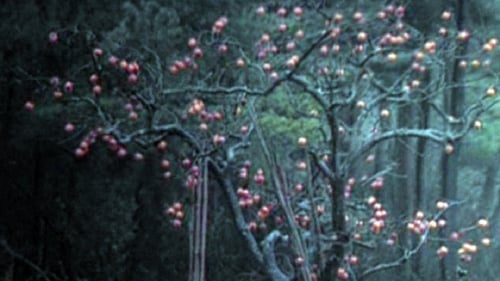
Producer
This intimately narrated journey from Russia to Rotterdam, via rail, road and Finnish ferry, is a melancholy meditation on divinity, time and place in art, purpose (or its lack) and the loneliness of the soul. Passing through misty snowscapes, half-glimpsed cities and the icy night sea-swell.

This intimately narrated journey from Russia to Rotterdam, via rail, road and Finnish ferry, is a melancholy meditation on divinity, time and place in art, purpose (or its lack) and the loneliness of the soul. Passing through misty snowscapes, half-glimpsed cities and the icy night sea-swell.

Writer
This intimately narrated journey from Russia to Rotterdam, via rail, road and Finnish ferry, is a melancholy meditation on divinity, time and place in art, purpose (or its lack) and the loneliness of the soul. Passing through misty snowscapes, half-glimpsed cities and the icy night sea-swell.

Director
This intimately narrated journey from Russia to Rotterdam, via rail, road and Finnish ferry, is a melancholy meditation on divinity, time and place in art, purpose (or its lack) and the loneliness of the soul. Passing through misty snowscapes, half-glimpsed cities and the icy night sea-swell.
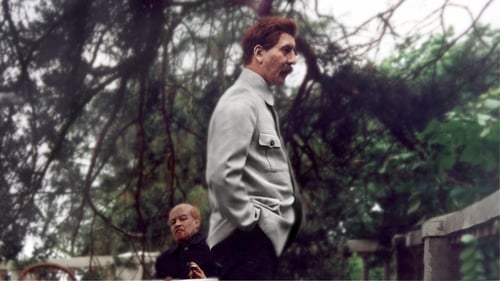
Director of Photography
Unfolding over two days in 1924, the film depicts the dying Lenin, world revolutionary and father of the USSR, now powerless and isolated at his Gorki estate. Cared for by his wife, Nadezhda Krupskaia, sister Maniasha, his German doctor and several attendants, Lenin raves about his diminishing faculties, discusses the deaths of great figures (including Marx), rides a car to a picnic in a meadow and ponders his historic legacy.

Director
Unfolding over two days in 1924, the film depicts the dying Lenin, world revolutionary and father of the USSR, now powerless and isolated at his Gorki estate. Cared for by his wife, Nadezhda Krupskaia, sister Maniasha, his German doctor and several attendants, Lenin raves about his diminishing faculties, discusses the deaths of great figures (including Marx), rides a car to a picnic in a meadow and ponders his historic legacy.

Director
A documentary portrait of Miho Shimao, widow of renowned Japanese writer Toshio Shimao.
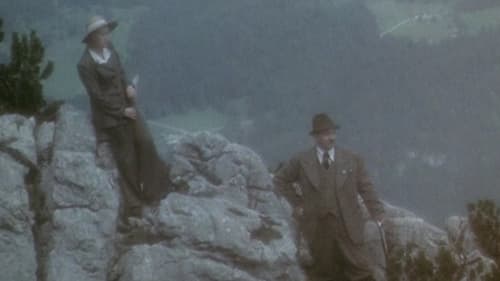
Director
In 1942 Bavaria, Eva is alone, when Adolf arrives with Josef, his wife Magda, and Martin to spend a couple of days without politics.

The Dialogues with Solzhenitsyn is a two-part Russian television documentary by Russian filmmaker Alexander Sokurov on Aleksandr Solzhenitsyn. The documentary shot in Solzhenitsyn’s home shows his everyday life and covers his reflections on Russian history and literature.

Director
The Dialogues with Solzhenitsyn is a two-part Russian television documentary by Russian filmmaker Alexander Sokurov on Aleksandr Solzhenitsyn. The documentary shot in Solzhenitsyn’s home shows his everyday life and covers his reflections on Russian history and literature.

Writer
Originally aired on Russian television, this five-part semi-documentary series tells the story of a Russian naval commander in charge of an Arctic-based ship. The film provokes a meditation on solitude and isolation, while revealing the daily duties associated with the ship. Voice-over narration by the commander, other sailors, and even a third-person voice provide the "confession" of the title.

Director
Originally aired on Russian television, this five-part semi-documentary series tells the story of a Russian naval commander in charge of an Arctic-based ship. The film provokes a meditation on solitude and isolation, while revealing the daily duties associated with the ship. Voice-over narration by the commander, other sailors, and even a third-person voice provide the "confession" of the title.

Writer
A documentary film about the Russian director Sergei Kosintsev.

A documentary film about the Russian director Sergei Kosintsev.

Director
A documentary film about the Russian director Sergei Kosintsev.

Writer
A Humble Life is certainly true to its title, a documentary study of the day-to-day world of Umeno Mathuyoshi, an old woman who lives in an isolated mountain house in the Nara prefecture in Japan.

Director
A Humble Life is certainly true to its title, a documentary study of the day-to-day world of Umeno Mathuyoshi, an old woman who lives in an isolated mountain house in the Nara prefecture in Japan.

Writer
Petersburg Diary - Opening of the monument to Dostoevsky

Director
Petersburg Diary - Opening of the monument to Dostoevsky

(voice)
Petersburg Diary - Opening of the monument to Dostoevsky

Director
A man goes for a walk through the countryside with his dying mother.

Writer
Aleksander Sokurov brings the treasures of the Hermitage back into the light by making films about artists and their paintings. He has chosen the painter Hubert Robert, who spent a long time in Italy, and whose preference was for creating ancient ruined landscapes and naturalistic portrayals of times past. He was successful with the wealthy, who bought his works from him. The camera pans across the paintings while Sokurov speaks of a happy era, when the artist was at one with the spirit of the times, and agreed with the taste of his clients. Just how far removed from us this is, is shown by pictures of a "Nô" performance which are inter-cut on the screen. No words are necessary to describe what everybody knows today.

Narrator
Aleksander Sokurov brings the treasures of the Hermitage back into the light by making films about artists and their paintings. He has chosen the painter Hubert Robert, who spent a long time in Italy, and whose preference was for creating ancient ruined landscapes and naturalistic portrayals of times past. He was successful with the wealthy, who bought his works from him. The camera pans across the paintings while Sokurov speaks of a happy era, when the artist was at one with the spirit of the times, and agreed with the taste of his clients. Just how far removed from us this is, is shown by pictures of a "Nô" performance which are inter-cut on the screen. No words are necessary to describe what everybody knows today.

Director
Aleksander Sokurov brings the treasures of the Hermitage back into the light by making films about artists and their paintings. He has chosen the painter Hubert Robert, who spent a long time in Italy, and whose preference was for creating ancient ruined landscapes and naturalistic portrayals of times past. He was successful with the wealthy, who bought his works from him. The camera pans across the paintings while Sokurov speaks of a happy era, when the artist was at one with the spirit of the times, and agreed with the taste of his clients. Just how far removed from us this is, is shown by pictures of a "Nô" performance which are inter-cut on the screen. No words are necessary to describe what everybody knows today.

Director
This film project was made in 1996 to commemorate the 100th anniversary of the birth of the cinema.

Narrator (voice) (uncredited)
A surreal journey of a displaced spirit as he wanders in the interminable darkness through the temporal landscape of a quaint and isolated feudal-era fishing village. Guided by a series of faintly illuminated rooms, the wandering spirit comes upon ancient souls who take on physical forms as they recount their personal stories of daily existence, loss, and tragedy in the peasant community. Intrigued by his initial visit to a curiously distracted elderly woman, the spirit returns to her home in order to ask a fundamental question - "What is happiness?" - an existential query that is innocently answered with innate humility and accepted unknowingness.

Writer
A surreal journey of a displaced spirit as he wanders in the interminable darkness through the temporal landscape of a quaint and isolated feudal-era fishing village. Guided by a series of faintly illuminated rooms, the wandering spirit comes upon ancient souls who take on physical forms as they recount their personal stories of daily existence, loss, and tragedy in the peasant community. Intrigued by his initial visit to a curiously distracted elderly woman, the spirit returns to her home in order to ask a fundamental question - "What is happiness?" - an existential query that is innocently answered with innate humility and accepted unknowingness.

Director
A surreal journey of a displaced spirit as he wanders in the interminable darkness through the temporal landscape of a quaint and isolated feudal-era fishing village. Guided by a series of faintly illuminated rooms, the wandering spirit comes upon ancient souls who take on physical forms as they recount their personal stories of daily existence, loss, and tragedy in the peasant community. Intrigued by his initial visit to a curiously distracted elderly woman, the spirit returns to her home in order to ask a fundamental question - "What is happiness?" - an existential query that is innocently answered with innate humility and accepted unknowingness.

Writer
In 1994, Alexander Sokurov accompanied Russian troops assigned to a frontier military post at the Tajikistan/Afghanistan border to film their experiences. While unnamed tribal forces occasionally engaged the troops in skirmishes, Sokurov’s haunting documentary chronicles the downtime between activity.

Director
In 1994, Alexander Sokurov accompanied Russian troops assigned to a frontier military post at the Tajikistan/Afghanistan border to film their experiences. While unnamed tribal forces occasionally engaged the troops in skirmishes, Sokurov’s haunting documentary chronicles the downtime between activity.

Writer
This small film came out of the material edited for Sokurov's five-hour documentary Spiritual Voices.

This small film came out of the material edited for Sokurov's five-hour documentary Spiritual Voices.

Director
This small film came out of the material edited for Sokurov's five-hour documentary Spiritual Voices.

Screenplay
An anonymous man wanders through decomposing, fog-enshrouded catacombs and encounters a series of “the degraded and the humiliated,” including a holy prostitute and a Kafkaesque bureaucrat.

Director
An anonymous man wanders through decomposing, fog-enshrouded catacombs and encounters a series of “the degraded and the humiliated,” including a holy prostitute and a Kafkaesque bureaucrat.

Screenplay
These images and sounds are poetic metaphors that transform “Elegy from Russia” into a document that provides a emotional–historical “memory bank” for all.

Director
These images and sounds are poetic metaphors that transform “Elegy from Russia” into a document that provides a emotional–historical “memory bank” for all.

Director
Frente el museo de Chéjov, un joven hombre tiene un encuentro místico con un fantasma que bien podría ser el del mismo Chéjov. (FILMAFFINITY)

Writer
The second film by Sokurov featuring Boris Yeltsin as the principal character. Now he is the President of Russia, invested with power, bearing the full responsibility for the destinies of his distant compatriots as well as his closest kin and friends.

Himself
The second film by Sokurov featuring Boris Yeltsin as the principal character. Now he is the President of Russia, invested with power, bearing the full responsibility for the destinies of his distant compatriots as well as his closest kin and friends.

Director
The second film by Sokurov featuring Boris Yeltsin as the principal character. Now he is the President of Russia, invested with power, bearing the full responsibility for the destinies of his distant compatriots as well as his closest kin and friends.

Writer
Made up of footage of a protest manifestation of mothers whose children had been summoned to serve in Soviet military forces and sent to the zones of Transcaucasian conflicts.

Director
Made up of footage of a protest manifestation of mothers whose children had been summoned to serve in Soviet military forces and sent to the zones of Transcaucasian conflicts.

Director
Un hombre intenta llegar a un acuerdo con la muerte de su padre y tratar con los detalles mundanos de su entierro en una sociedad aislada de la espiritualidad.

Writer

Director

A montage of Leningrad newsreel becomes a composite collage made up of documents-shots, divided in 16 parts, presenting the author's point of view on Russia and modern times. In the title, Sokurov appears as 'compiler' and the selection of the documents is just like an artistic process.

Director
A montage of Leningrad newsreel becomes a composite collage made up of documents-shots, divided in 16 parts, presenting the author's point of view on Russia and modern times. In the title, Sokurov appears as 'compiler' and the selection of the documents is just like an artistic process.

Writer
In "The Soviet Elegy" the long train of photos of the Soviet leaders, dead or alive, stops at the portrait of Yeltsin. At the time of shooting Yeltsin had fallen down from the assembly of the Communist Party deities, and participated in the earthly life through connections of different kinds.

Director
In "The Soviet Elegy" the long train of photos of the Soviet leaders, dead or alive, stops at the portrait of Yeltsin. At the time of shooting Yeltsin had fallen down from the assembly of the Communist Party deities, and participated in the earthly life through connections of different kinds.

Narrator (voice)
In "The Soviet Elegy" the long train of photos of the Soviet leaders, dead or alive, stops at the portrait of Yeltsin. At the time of shooting Yeltsin had fallen down from the assembly of the Communist Party deities, and participated in the earthly life through connections of different kinds.

Narrator
The story about the life of Shaliapin’s family, and an emotional generalization of the life of people in modern Leningrad.

Director
The story about the life of Shaliapin’s family, and an emotional generalization of the life of people in modern Leningrad.

Writer
As with so many early films by Sokurov, this film has two dates: the first is the date of its creation (the film was then banned), the second is the date of the final edition and legal public screening. The film consists of German and Soviet archive footage of the World War II — to be exact, from the end of the war. An attempt to make a large–scale documentary on this subject had been undertaken in the Soviet cinema of the 1960s: the film — “Ordinary Fascism” — by the outstanding Soviet film–maker Mikhail Romm had become a classic retrospective investigation of fascism. But Sokurov uses the expressive power of the documentary image in an absolutely different way. He does not amass materials for a large–scale picture of Nazi crimes.

Director
As with so many early films by Sokurov, this film has two dates: the first is the date of its creation (the film was then banned), the second is the date of the final edition and legal public screening. The film consists of German and Soviet archive footage of the World War II — to be exact, from the end of the war. An attempt to make a large–scale documentary on this subject had been undertaken in the Soviet cinema of the 1960s: the film — “Ordinary Fascism” — by the outstanding Soviet film–maker Mikhail Romm had become a classic retrospective investigation of fascism. But Sokurov uses the expressive power of the documentary image in an absolutely different way. He does not amass materials for a large–scale picture of Nazi crimes.

Director
Inspired by Flaubert’s Madame Bovary, Sokurov’s Save and Protect recalls the most crucial events of Emma’s decline and fall: affairs with the aristocratic Rodolphe and the student Leon, the humiliation that follows her husband’s botching of the operation on the stable boy’s clubfoot. The universality of the theme of eternal struggle between the soul and the flesh is conveyed through the absence of specific reference to time or place: although the film seems to begin in 1840, its surreal mode effortlessly accommodates an automobile and the strains of “When the Saints Go Marching In” on an off-screen radio. Focusing on passion from a woman’s perspective and downplaying plot, Sokurov explores his subject in exquisite detail, capturing not only the heat of passion but also the quiet moments before and after and the innocent sensuousness of the body.

Writer
A requiem for a Russian peasant woman, Maria Semionovna Voinova. The film is in two chapters. The first chapter consists of an impression of Maria Semionovna, scenes of the colours of summer time: hay–making, bathing in a river, work in the flax fields and a holiday in the Crimea. The second chapter, set nine years later, is in black and white and deals with how Maria Semionovna's life ended. The mood is one of a sad and elegiac narration.

Director
A requiem for a Russian peasant woman, Maria Semionovna Voinova. The film is in two chapters. The first chapter consists of an impression of Maria Semionovna, scenes of the colours of summer time: hay–making, bathing in a river, work in the flax fields and a holiday in the Crimea. The second chapter, set nine years later, is in black and white and deals with how Maria Semionovna's life ended. The mood is one of a sad and elegiac narration.

narrator (voice)
The picture is about the anti-Hitler coalition of the USSR, England and America, which developed as a counterweight to the aggressive policy of Nazi Germany during the Second World War. The unique newsreel footage of these years, shot by operators of different warring countries, is connected with today's thoughts of the author about the fate of the post-war world, about the humanitarian losses of both sides and about gaining unstable hopes for the unity of the world in countering evil.

Director
The picture is about the anti-Hitler coalition of the USSR, England and America, which developed as a counterweight to the aggressive policy of Nazi Germany during the Second World War. The unique newsreel footage of these years, shot by operators of different warring countries, is connected with today's thoughts of the author about the fate of the post-war world, about the humanitarian losses of both sides and about gaining unstable hopes for the unity of the world in countering evil.

Director
En el Turkmenistán soviético, región fronteriza de extremada aridez y calor sofocante, el joven doctor Malianov (Aleksei Ananichnov) alterna la atención médica a la población infantil con una investigación sobre la menor propensión a la enfermedad de los niños que viven en comunidades creyentes. Misteriosas fuerzas se conjuran para impedir el avance de este trabajo: un teléfono que suena incesantemente, un amigo que conmina al doctor a abandonar la región, la visita inesperada de su hermana, un muerto que le advierte sobre la conveniencia de no ir más allá de los límites establecidos, el asalto de un rebelde, la aparición súbita de un niño que reclama su atención. Personal adaptación de una novela de ciencia-ficción de los hermanos Strugatski que traza los avatares de una crisis espiritual en un escenario apocalíptico en el que se intuye el inminente desmoronamiento de un sistema político. (FILMAFFINITY)

Writer
The manifestation and fireworks on the 1st of May, one of the ritual celebrations of Soviet times, as a gathering of tired participants of a mass scene falling into pieces without the director's orders and without any aims.

Director
The manifestation and fireworks on the 1st of May, one of the ritual celebrations of Soviet times, as a gathering of tired participants of a mass scene falling into pieces without the director's orders and without any aims.

Director
Nikita, atormentado por la guerra civil, conoce a Luba, que es tan profundamente moral y solitaria como él. Con esta película Sokurov debuta como director basada en el libro "The River Potudan". Fue filmada en 1978 y prohibida por la censura soviética hasta que finalmente pudo estrenarse en 1987. Elogiada y defendida con entusiasmo por Andrei Tarkovsky, quien lo señala como su verdadero discípulo.

Director of Photography
Una adinerada mujer, postrada en la cama por una enfermedad, intenta ponerse en contacto por teléfono con su marido, pero la comunicación se ve interrumpida. (FILMAFFINITY)

Director
Una adinerada mujer, postrada en la cama por una enfermedad, intenta ponerse en contacto por teléfono con su marido, pero la comunicación se ve interrumpida. (FILMAFFINITY)

Writer
A 1988 documentary film directed by Alexander Sokurov, about the later life and death of Soviet Russian filmmaker Andrei Tarkovsky. The film was originally intended to mark the 50th birthday of Tarkovsky in 1982, which would have been before his death. Controversy with Soviet authorities about the film's style and content led to significant delays in the production.

Narrator (voice)
A 1988 documentary film directed by Alexander Sokurov, about the later life and death of Soviet Russian filmmaker Andrei Tarkovsky. The film was originally intended to mark the 50th birthday of Tarkovsky in 1982, which would have been before his death. Controversy with Soviet authorities about the film's style and content led to significant delays in the production.

Director
A 1988 documentary film directed by Alexander Sokurov, about the later life and death of Soviet Russian filmmaker Andrei Tarkovsky. The film was originally intended to mark the 50th birthday of Tarkovsky in 1982, which would have been before his death. Controversy with Soviet authorities about the film's style and content led to significant delays in the production.

Director
A la mansión del excéntrico capitán Shotover (Ramaz Chjikvadze) llega una comitiva de extravagantes personajes, entre los que están Ellie Dunn (Victoria Amitova) y su prometido, el Jefe Mangan (Ilya Rivin). A la amenaza de una guerra inminente se unen los escarceos amorosos, los pantagruélicos banquetes, muertes súbitas, autopsias y resurrecciones. Finalmente, los personajes se encontrarán en una precaria balsa en medio del océano, lo que representa la incertidumbre del futuro en un medio tan peligroso como inestable. Libérrima adaptación de la obra de teatro de George Bernard Shaw "La casa de las penas" (Heartbreak house). El autor intervendrá en la historia para tratar de poner orden en la representación de su propia obra. (FILMAFFINITY)

Director
The reburial of great Russian singer Feodor Chaliapin from Les Batignolles cemetery in Paris to Novo–Devitchye cemetery in Moscow. The daughters from Chaliapin’s second marriage travel to the Soviet Union for the ceremony.

Director
Interesting short documentary on young athletes in a Soviet ice skating program, some of whom are barely past toddler age. Kinetic and up close, the doc focuses on movement with music, eschewing interview and conversation, and mostly submerging political and social commentary.

Director
Banned by Soviet authorities when it was first completed, this requiem for Russian composer and pianist Dmitri Shostakovich pays homage to the remarkable works and difficult path of the influential artist. Through personal documents, performances and archival footage, this emotional study charts Shostakovich's turbulent life, from his early success to his disgrace under Stalin and his eventual embrace as one of his country's most gifted talents.

Writer
This film was Sokurov's first feature at Lenfilm, roughly based on a short story by the contemporary Soviet writer Grigory Baklanov about the transitional period from power to subordinance.

Director
This film was Sokurov's first feature at Lenfilm, roughly based on a short story by the contemporary Soviet writer Grigory Baklanov about the transitional period from power to subordinance.

Writer
A document on the daily life of an ordinary collective farm of the U.S.S.R. in 1978 : the hard-working people who love their work just because they are brought up to do so, almost with no rewards from life, in an atmosphere contaminated with official rhetoric.

Director
A document on the daily life of an ordinary collective farm of the U.S.S.R. in 1978 : the hard-working people who love their work just because they are brought up to do so, almost with no rewards from life, in an atmosphere contaminated with official rhetoric.

Director
In the 20's an enthusiast radio amateur, Fyodor Lbov, experiments one of the first short-waves radio in the city of Gorky.

Editor
This film was created by Sokurov before or during his VGIK student years for the regional TV of Gorki. He does not consider it a part of his filmography. For its creators, it was just a TV program, and the people who worked on it most often were being given no distinction in the credits. This document of the very origins of Sokurov gives us a notion of his "pre-stylistic" period, where the personality of the future great filmmaker reveals itself in spite of means and circumstances.

Director
This film was created by Sokurov before or during his VGIK student years for the regional TV of Gorki. He does not consider it a part of his filmography. For its creators, it was just a TV program, and the people who worked on it most often were being given no distinction in the credits. This document of the very origins of Sokurov gives us a notion of his "pre-stylistic" period, where the personality of the future great filmmaker reveals itself in spite of means and circumstances.

Writer
A documentary film about the agricultural development in the region of Gorky: the everyday life in a sovkhoz, the building of a reservoir and of a greenhouse.

Director
A documentary film about the agricultural development in the region of Gorky: the everyday life in a sovkhoz, the building of a reservoir and of a greenhouse.

Director
A graduate of the Philology Department of Moscow State University from the 1960s enters into a confrontation with the Albanian dictator and ends up in prison.
